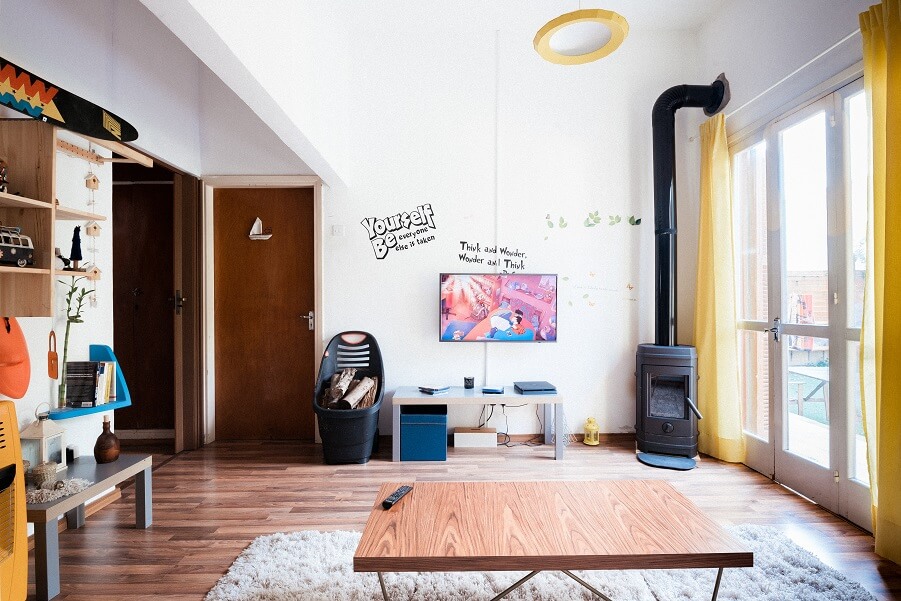
Guest Responses That May Be A Red Flag For Your Airbnb
When your Airbnb guests respond, either before or after booking, it can reveal a lot about how they will behave during their stay.
Renting out a room, apartment, house, or any other type of space on Airbnb can be a fantastic experience. It can bring in extra income, allow you to be creative with your hospitality, and provide an opportunity to meet great people.
But being a host also comes with a lot of challenges. Approving potential guests for a stay can be especially tricky since it’s often hard to know what kind of guest someone will be before it happens.
However, as a host, there are a few things you can look for to determine if it might not be the best choice to let someone stay. Here are some guest responses that may be red flags for your Airbnb.
Making Too Many Requests
If you receive a message from a guest or a potential guest that contains a long list of requests, it could be a red flag. Making a few special requests is fine and not out of the ordinary. Asking for some water bottles, extra towels, a hairdryer, early or late check-in or late check-out, etc, isn’t too much to ask. But when someone has an extremely long list of needs that aren’t already provided in your amenities, it suggests they view your space as a hotel, not an Airbnb.
An even greater red flag is the tone of their requests. If a guest is demanding that you provide them with things not specified on your Airbnb listing, that’s a big clue that this person will be difficult to deal with and doesn’t want to accept the terms as stated. It’s best to move on.
Negotiating Too Much
Airbnb hosts sometimes receive messages from prospective guests asking if it would be possible to negotiate the price. While this negotiation is usually within reason, some guests go overboard, asking for a discount.
Perhaps they ask for a price reduction, and you offer one, and then they ask for another one. Maybe they go back and forth trying to negotiate, or they demand a price so low it wouldn’t be feasible. This shows that they don’t respect your stated price terms and how Airbnb operates. Most likely, they are not taking into consideration all that goes into running an Airbnb and would, therefore, not make a good guest. A possible response could be to suggest they search for a listing that more appropriately fits their budget using the pricing scale in the Airbnb search filters.
The Possible Partier
You might receive a guest response that hints at the fact that the person wants to have a party in your space. Some examples could be:
- Asking how many people they are allowed to have over
- Inquiring if they are permitted to play loud music
- Wanting to know if there is a stereo system in the space
- If there are cameras present on the premises*
If they ask one of the above questions, that could be a sign that they plan to have a party without telling you.
*If they are just asking about cameras, it usually does not mean they want to have a party; it’s often related to security and privacy concerns. Coupled with the other questions mentioned, this could be a red flag. They don’t want to be caught.
Another important thing to watch out for is single-night reservations, especially on the weekend. That allows a person to get in, throw a party for the night, get out, and leave your space filthy and ruined. If the guest is upfront about wanting to have others over but passes it off as “just a few people” without giving a specific number, they could plan to have a large party.
If you do not wish to have parties at your Airbnb, be sure to clearly state this and any occupancy limitations in your House Rules and require each guest to agree to it prior to booking.
Not Responding in Detail
Perhaps you send a guest a message and receive a very brief or brusque response. Depending on the message, this might be a red flag.
For example, if you ask why the guest will be staying, and you receive a one-word answer, that’s a potential clue that they might be hiding something. It could also mean that they don’t care enough to provide you with the details you need, and therefore won’t care very much for the property or for following the rules either.
A considerate guest will always make sure to respond courteously and properly answer any questions you have.
Not Answering Honestly
Lying is and always should be a red flag. If you have a suspicion that a guest might be lying about something, do your best to prove that they are before accusing them of anything.
If you do find out a guest hasn’t been truthful, whether that’s information on their profile, the number of guests staying, or what they plan to do with the space, you should think very carefully about letting them stay. There could be a viable reason why they are withholding or changing information, but it could also mean they are trying to get away with something that goes against the rules.
When Guest Responses are Rude
Lastly, and probably the most obvious red flag, is a guest who responds rudely to you or sends you an abrasive or impolite booking request.
A person who addresses you without respect shows that they will most likely cause major problems down the line. If they don’t even respect you as the host, there’s a good chance they will not respect your property or the terms and agreements.
It’s recommended to avoid this type of person, as you never know if things will turn sour if they feel they haven’t received proper treatment. That could mean a bad rating and review for you, a breach of the rental agreement, or even damage to your property.
Conclusion
Although most Airbnb guests are lovely and have stays that go on without a hitch, some guests are just not a good fit. Reading their responses for clues can help to eliminate any problems.
About the Author Rachel Jones
Rachel Jones is an award-winning writer and editor from Oklahoma City, OK. Her work has been published on influential sites, including Entrepreneur and International Business Times. She spent several years in property management and leasing, handling short-term rentals, student housing, and community rentals. Rachel is also experienced in staging and real estate photography. With a B.A. in English in her back pocket, Rachel combines her passion for property management with her storytelling ability to offer Airbnb hosts helpful advice as they monetize their homes.
Related
5 Reasons Why You Should Install Privacy-Safe Noise Monitors in Your Short-Term Rental Properties
How To Start An Airbnb Business
7 Time-Saving Hacks Hiding Inside a Digital Guest Welcome Book
How to Leverage Profit First for Your Short-Term Rental Business
How To Gain a Competitive Edge & Thrive in Your Evolving Vacation Rental Market
The Five Best Airbnb Products That We Found on InHouse
5 Tips on Hosting a Kid-Friendly Airbnb
New Short-Term Rental Bans, Rules, and Regulations: How Hosts Can Adapt
